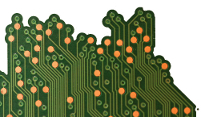
The GreeningIT directory was officially launched today, marking the first open online database of resources that focuses on the intersection of ICTs and environmental sustainability.
The directory aims to gather and present a comprehensive annotated list of initiatives, tools and online communities, featuring both innovative and traditional applications of ICTs to address climate change, environmental issues and the environmental impact of ICTs.
Featured resources fall under three broad topic areas, each divided into sub-categories:
- ICTs and climate change: the use of ICTs in predicting, mitigating, and adapting to climate change and its effects, including scientific research, campaigning and management tools on climate change and greenhouse gases.
- ICTs and environmental sustainability: the use of ICTs in all fields related to environmental sustainability, excluding climate change: i.e., environmental online media and campaigns, scientific research, remote sensing and decision support tools.
- ICTs and environmental impact: focuses on the environmental impact of ICTs (internet infrastructure, computers and mobile devices) throughout their lifecycle: production, use and electronic waste management. * It also includes research on the potential far-reaching, long-term effects of ICT use on production and consumption patterns and the global economy.
The overarching goal is to spur networking, build linkages and support the emergence of a knowledge community that will play an on-going role in conducting policy and action research in the field of ICTs and environmental sustainability and climate change.
To this end, the database is made freely available for download in .CSV (comma separated values) format. All the information in the directory is licensed under a Creative Commons license. Contributions by users are strongly encouraged. The first entries in the directory came in response to APC’s widely distributed call in February 2010, generating a snowball effect of related resources.
“Putting together so much varied information makes the GreeningIT directory unique and valuable for two reasons. First, it attempts to encompass the multiple feedback effects between ICTs and their potential positive and negative impacts on the environment. And second, it unearths a multitude of initiatives that would not normally surface because they operate on very different levels and in many different niches and regions,” says Evgenia Tasheva of Bulgarian APC member BlueLink current administrator of the directory.
A related research effort by APC members is currently underway, designed to analise existing habits, needs and barriers related to the sustainable use of ICTs, and to identify emerging ICT tools and practices that facilitate a more environmentally sustainable application of ICTs. These initiatives are part of a larger GreeningIT effort to build up an action research network (ARN) of policy advocates, practitioners, researchers, campaigners and activists committed to making ICTs work for environmental sustainability.
The GreeningIT directory was started thanks to institutional support from the International Development Research Centre (IDRC).